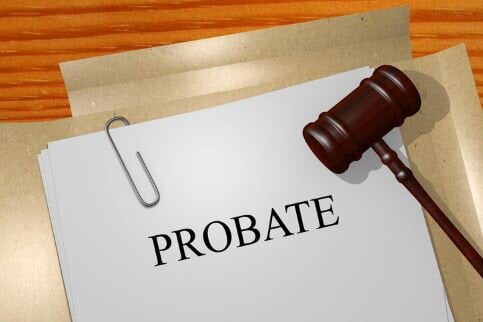
One question we frequently get from prospective clients is “Can I be the Administrator in a California Probate even if I live out of state?”
The answer is Yes, you can.
And it’s actually not as difficult as one might think. Our firm frequently represents out of state Administrators in California Probate Matters.
In this article, we’ll run through the steps and answer some frequently asked questions about California Probates.
-
What’s the first step to gain control of someone’s assets in California who has passed away?
If someone passes away in California and owns more than $166,000 worth of assets, you’ll need to open a Probate Case in the court where the person lived. This is only true if those assets are not in a trust nor do they have a beneficiary listing. The Probate will allow you to gain access to the person’s assets.
Opening a probate case can be done by a California attorney and does not require the Administrator’s physical presence in California. So how do you get started?
First, find an experienced probate attorney who frequently assists with probates in the specific county where the person resided. This is important, because probate procedures differ from county to county. Each county is mired in local rules, and with the pandemic now afoot, counties are constantly updating their rules.
Once you’ve chosen an attorney to work with, he or she will draft all the paperwork necessary to open a probate case and appoint an Administrator (or Executor if there is a Will). The attorney will file the paperwork with the Court and the Court will set a hearing date. Generally this is 6-8 weeks out.
If there is an urgent need to gain control over assets (such as an impending foreclosure), your attorney can file documents for a Special Administration which can be heard within a number of days by the Court.
-
How is the process different for out of state Administrators?
Generally, the main difference for out of state Administrators has to do with the Bond. When the Court appoints someone to be in charge of an estate (the Administrator or Executor) that person will often be required to be “bonded.” The bond is like an insurance policy against theft of the assets in the estate. Beneficiaries and heirs often waive bond if they have complete trust in the Executor or Administrator. (Quick note – Executor is the term used when there is a Will, Administrator is used when there is no Will).
However, in the case of an out of state administrator, the court will often require a bond. This is perhaps the main difference between Administrators who are residents and those who are not. If you have a savvy attorney and the right Judge, you may be able to get the bond greatly reduced. That’s important because bond prices correlate with the size of the bond.
-
Will an Out of State Administrator need to come to California for Court Hearings?
No. Attorneys can appear on a client’s behalf without them needing to be in Court. Prior to Court Hearing dates, the Court normally provides a list of questions that attorneys take care of and sign for remotely. This ensures that the Court has all its answers on the day of the hearings, and the Administrator need not be present at the hearing.
-
What if an out state Administrator needs to provide paperwork to the attorney or provide original signatures to the Court?
Most paperwork can be scanned or faxed to the attorney. Some clients choose to physically mail the documents to the attorney. An original signature is seldom necessary in the course of a probate. However, when it’s needed those documents can be mailed to the attorney. Other documents requiring signature can be faxed or emailed.
-
Can an Out of State Executor/Administrator avoid coming to California Completely?
Generally, the answer is no. We have had perhaps one or two out of state administrators who have completely avoided a trip to California, but this is unusual.
However, the reason the Administrators come typically does not have anything to do with the legal proceedings of the proceed. Instead, Administrators generally have to (or want to) be physically present at some point to oversee the sale of property and/or the distribution of the deceased’s personal property.
The Digital Age
Digital capabilities are such that very little needs to be signed with “wet” ink. Certain documents like the Letters of Administration and documents for the County Assessor are the rare exception.
Some Courts have not kept up with technology to the degree that the rest of the world has. However, hiring a local attorney means that he or she can meet any “physical” obligations of court proceeding.
Communication when you’re out of State
Perhaps the most important aspect of being an out of state Administrator or Executor is the ability to communicate with your Attorney. You want to be able to reach him or her via email and phone, especially during events like the national shutdown that occurred this spring. We frequently speak with individuals who have difficulty getting responses from their attorneys, so it’s particularly important to make sure you’re working with someone who will respond to your questions in a timely manner.
Recommendations and Referrals when you’re out of State
When you’re not local, it’s crucial to work with an attorney who can refer you to reliable resources, such as real estate agents who know probate sales and local CPA’s.
The Bottom Line
Being an Out of State Administrator or Executor of an Estate in California is very doable. The right attorney can guide you through every step along the way, and appear on your behalf at every court hearing.
